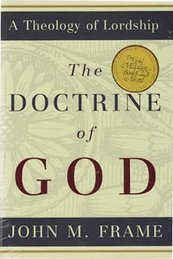During the medieval period, many Christians called for simplicity in following the way Jesus taught. Friars Preachers (the Dominicans) squabbled with Friars Minor (the Franciscans) about going barefoot. When Wyclif saw this, he said disparaging that there are more important things to think about in the endeavour to follow Christ. [Wyclif, Sermones, Super Evangelia Dominicalia, Sermo III, ed. J. Loserth (Wyclif Society, London, 1887), vol. I, p. 24 ]
The Question …
Should we go barefoot? On most paintings, Jesus is shown barefoot. One reason maybe that it is a symbol of peace. In ancient times, shoes predominantly served as military equipment. Therefore Isaiah announced that “For every boot of the tramping warrior in battle tumult and every garment rolled in blood will be burned as fuel for the fire.” (Isaiah 9:5, ESV), or as the NLT puts it:
In that day of peace, battle gear will no longer be issued. Never again will uniforms be bloodstained by war. All such equipment will be burned. (Isaiah 9:5)
Jesus had also advised his disciples to go out for preaching the
… … But can being barefoot prove one is more godly? Before I proceed, I would consider the historical context behind the story first.
The History behind the story
In 1209, a sermon (on Mt 10:9) which Francis heard made such an impression on him that he decided to devote himself wholly to a life of apostolic poverty. Clad in a rough garment, barefoot, and, after the Evangelical precept, without staff or scrip, he began to preach repentance. St. Francis of
However, when Francis of Assissi died, the vision of Francis also ended. A debate on ‘poverty’ then ensued which involved the whole church. Some tried to continue Francis’s vision, but others were anxious to establish a more formal institutional structure, with the inevitable move towards involvement with property and bids for power. Francis’s ‘Franciscans’ [Today, the Franciscans are classified into 3 orders.] were divided in a bitter feud which drew the church in the West into a ‘poverty controversy’ lasting some generations.
In actual fact, this controversy about poverty which extends through the first three centuries of Franciscan history began in the lifetime of the founder. From the beginning, there were disagreements about the direction the order would take. The Franciscan minister general, Saint Bonaventure, sought a balance between the Conventuals, who wanted to adapt their poverty to the needs of the time, and the Spirituals, who wanted a strict poverty. The quarrel intensified during the 14th century when some of the Spiritual Franciscans, known as the Fraticelli, were condemned (1317-18) by Pope John XXII. Disagreements about the ideal of poverty brought about various splits and divisions in the First Order.
In history of the Franciscan order, we see that those who wanted to keep to the foundational principles of the Franciscan movement, and resist the acquisition of wealth and buildings and the adoption of the institutional structures which seemed to require such possessions, became the outlaws. Those Franciscans who found it convenient to become involved with property became respectable. Those who resisted were labeled as a dangerous fringe movement and ‘excluded’. From Church history, we also know the Benedictines became rich and often corrupt as they acquired more and more property. They ran great estates.
My thought:
1) From the sequence of events in the medieval period, it can be seen that there was a certain inherent tension in all monastic and religious life. Outlaws and outsiders are exactly the people Christ especially encouraged his followers to love. Christ urged his people not to reject strangers and outcasts; the stranger is a guest to be entertained (Matt. 25:35). (See Leviticus 19:10, 19:33-34; Exodus 22: 21-27. Maybe more on this in the future) Today, the very same thing can be seen, when outsiders (non church members), strangers and outcasts (poorer people & people who are not as well-dressed.) enter a church, the reaction that one can observe from church members is that of contempt. To the outsiders, strangers and outcasts, the church members’ expression is often one which says “you are unworthy of my notice”. When they walked past these people, they stare straight into the air. I would say this shows that they despise them. … and this happens even though we are supposedly called to be a witness. If this is how we witness, we need to repent and may God be gracious & forgive us.
So…, in the then medieval
2) For the Mendicants, within a generation of their founding at the beginning of the 13th century, they were already competing for the most prestigious professorships in the new universities and acquiring property and influence, all of these just to be ‘successful’ …!
… It’s no wonder they say good things don’t last. In both church history & contemporary church scene, the pursuit of wealth (prestige & reputation also) is prevalent among some of the church leaders and preachers (past popes, friars, health & wealth gospel preachers, preachers of Word-faith movement, heretics). Many of the church leaders and preachers (church-goers are not excluded also) wanted to be seen as respectable, to be ‘successful’ & to be seen as ‘successful’!! Both & church leaders are not immuned.
The Word-Faith teachers such as Kenneth Hagin, Kenneth Copeland, Paul Crouch, John Avanzini, Robert Tilton, Fred Price, and Benny Hinn (who authored the best selling Christian book in America, "Good Morning, Holy Spirit") are just a few that spew out this theological vomit. This is the group that would seek to convince us that Jesus and His disciples were rich, that to be poor is a sin, to be sick is a sin, and that faith is a creative force that we can use to shape our world just like God supposedly created this world and universe that we live in through His "faith"! However, upon close biblical examination, it could be said that the Word-Faith Theology within the Charismatic Movement has a cultic origin. … … but books by these authors are sold (easily found too!) in
But, doctrinal errors are not only from the West. In
…. Coming back to the question of “What is there to argue about?”, we can see that what we have here is not exactly an argument of whether a Christian can/ should go barefoot. Rather, it is an argument that shows one’s level of contentment & reliance on God’s providance. …. …. if there is one question to be argued, it would be whether we have believed in the wrong gospel. Have we believed false preachers’ twisting of the bible to fulfill our wants (or greed!)?
But false prophets also arose among the people, just as there will be false teachers among you, who will secretly bring in destructive heresies, even denying the Master who bought them, bringing upon themselves swift destruction. (2 Peter 2:1, ESV)
How do the different religions view barefoot?
Many religions consider removing shoes as appropriate when approaching holy places. In Exodus, Moses had to take off his shoes before approaching the burning bush. Muslims must be unshod for prayer or to attend services in a mosque. Some Christian churches also practice barefoot pilgrimage traditions. In the Hindu religion, shoes are removed before entering temples. The preference to go barefoot elsewhere in
A Biblical viewpoint?
Maybe we can start with the verse which motivated Francis of Assisi to live a different lifestyle. In Matthew 10:10, when Jesus Sends Out the Twelve Apostles, Jesus told them to go barefoot, without a staff.
9) Acquire no gold nor silver nor copper for your belts, 10) no bag for your journey, nor two tunics nor sandals nor a staff, for the laborer deserves his food. (Matthew 10:9-10, ESV)
9) Do not take along any gold or silver or copper in your belts; 10) take no bag for the journey, or extra tunic, or sandals or a staff; for the worker is worth his keep. (Matthew 10:9-10, NIV)
However, in Mark 6:8-9, Jesus told them to wear sandals and carry a staff.
He charged them to take nothing for their journey except a staff—no bread, no bag, no money in their belts— 9 but to wear sandals and not put on two tunics.(Mark 6:8-9)
In comparing these two verses, we see a difference in what to bring along & what not to. In commenting on this verse, D A Carson said: “Do not take along” more likely means “Do not procure” (Acts 1:18; 8:20;22:28). … Matthew’s account forbids “procuring” even sandals or a walking stick (Mk 6:8). Presumably this account assumes that the disciples already had certain things (one cloak, sandals, a walking stick) and probed them from “procuring” anything more. The disciples needed to learn the principle that “the worker is worth his keep” (cf. 1 Cor 9:14; 1 Tim 5:17-18) and to shun luxury while learning to rely on God’s providence through the hospitality of those who would take them in overnight, thus obviating the need for a second cloak. (NIV Bible Commentary Vol. II, Zondervan, p. 48, emphasis in bold is mine)
I don’t think Jesus would mind what we wear on our feet. Being a Spiritual Franciscans (Fraticelli) is useless if we are still proud & thinks we are better than others because of the things we do (or habits we have). What we ‘wear’ on our heart is more important! Do we ‘wear’ a heart which rely on God’s providence? Do we ‘wear’ a heart of compassion (for the lost, for the unevangelised)? What we ‘wear’ on our face is just as important! Do we ‘wear’ a proud face? …Or do we ‘wear’ a expression of joy that shows our belief in the salvation that we have in Christ?
But never mind, if one likes to go barefoot, don’t feel guilty or bad, it actually makes you healthy! Hmm, it seems like Jesus do know a two about Traditional Chinese Medicine (TCM).
Makes you healthy!
In certain parts of
As for its other benefits, some physicians who espouse natural healing traditions recommend going barefoot as a measure against flat feet, varicose veins, and dorsal pain. They believe that the potential benefits outweigh the potential risks. Currently this issue has not undergone any peer-reviewed study, the standard for a practice to be accepted by the medical establishment.
Be careful though!
However, there are some health issues connected with being barefooted. For example, parasites that can enter the body through the skin or cuts on bare feet. For instance, the intestinal parasite hookworm may infect humans who walk on soil containing hookworm larvae (typically in areas of poor sanitation).
So, should I be barefoot or not … when at beach, playing soccer, … …? So frustrated! … … barefoot & emotions.... the connection? Yes, being bare feet is also a form of expression of our feelings & emotions. In stage performances such as dancing, theatre, and opera, bare feet often express emotions, fears, vulnerability, a down-to-earth attitude, and/or familiarity. It may often alleviate a performer's sense of nervousness or anxiety in such situations, as being barefoot tends to promote physical, and by implication, mental comfort. (Source: Wikipedia, article on barefoot)
… … Just some random thought. So, What is there to argue about? Being bare feet or not, it’s just a matter of choice & preference!
Reference:
Wyclif, Sermones, Super Evangelia Dominicalia, Sermo III, ed. J. Loserth (Wyclif Society, London, 1887).



2 comments:
i cannot believe how well you have integrated historical and biblical truths with Traditional Chinese Medicine in one blog entry about going barefoot! Excellent reading, and always a joy to read your works. Keep it up! i am going to link your post in the synod youth ministry blog, if you dun mind.
Thanks for such kind words.
...linking of post ... of course I dun mind.It is always a joy to spread the Living Word through our written word!
Post a Comment